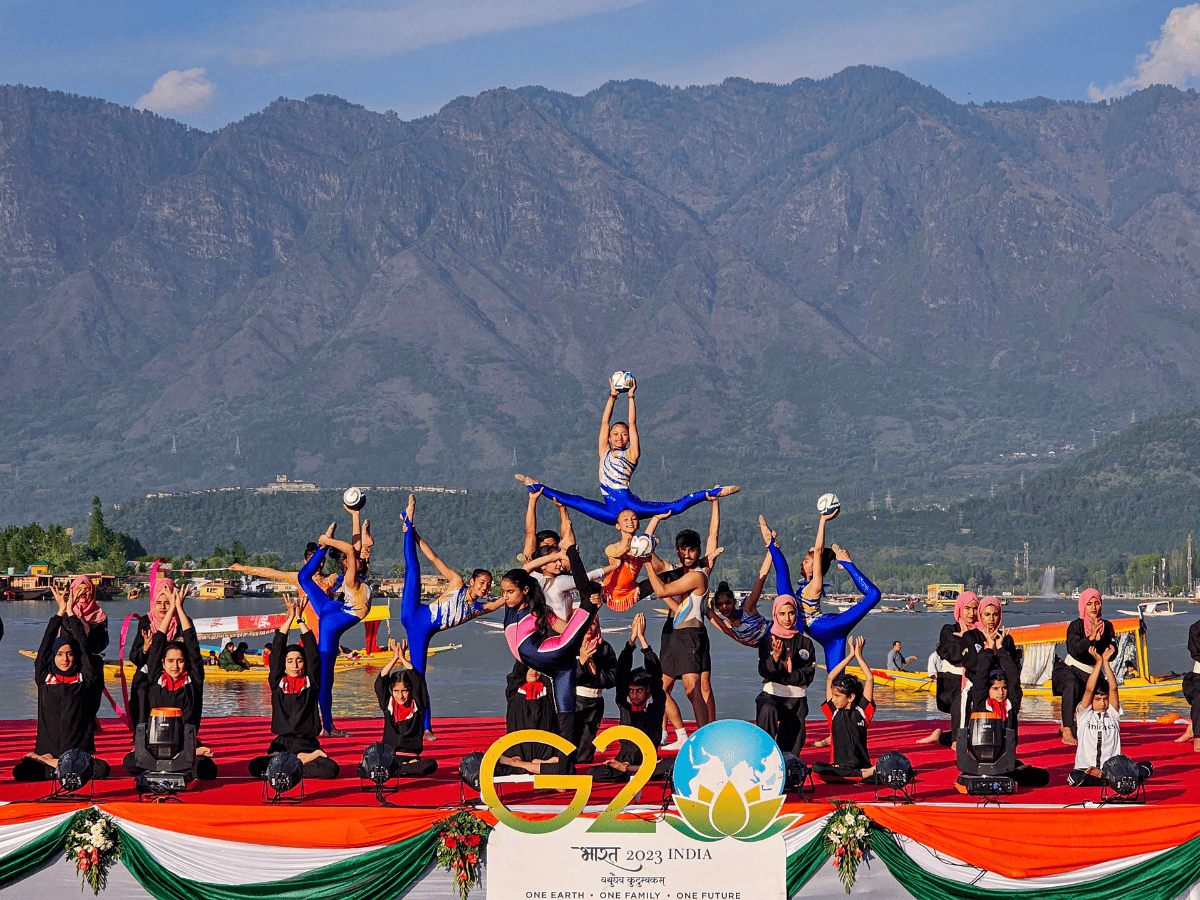
G20 meet on tourism in Srinagar has ended on a successful note. This success is sweeter for the Modi government than the events held in other cities in the country – 118 were held before Srinagar hosted the moot from May 22 to 24. This success will playout in the Indian narrative on Jammu and Kashmir as it is inevitable that the event would be counted as major evidence of the change taking place in the Himalayan territory, where hosting foreigners, particularly under a stamp of grouping was considered something beyond the realm of reality. This was made possible by the untiring efforts of the Jammu and Kashmir police and other wings of security forces which kept the troubles away and at the same time ensured that the security network was neither intrusive nor obtrusive.
The Narendra Modi government, ever since assumed presidency of the G20 grouping, in December last year, had been keen to do something extraordinary to send a message of its stability and global influence . There could have been no better place than Jammu and Kashmir to do so. This territory has undergone constitutional, geographical and political changes since 2019, which the government considers ground-breaking, while there is some skepticism in certain quarters.
On August 5, 2019, the government of India scrapped the semi-autonomous status of the state – its separate constitution, flag and all-powerful legislature among all the states and union territories were done away with, and the land was opened for Indians settled outside of the territory to settle and work. This was justified as a long due step because Article 370 had created, it was claimed “ artificial barriers” between the state and the rest of the country and also stoked secessionist tendencies. More than three-decade-long terrorism in Kashmir was cited as manifestation of the secessionist tendencies and the political patronage these received from an ecosystem patronized by the political groups that wanted to play a game of doubts on the territory and its people.
This move of August 5, 2019, had evoked some amount of resentment within the Valley, and it was harshly criticized by Pakistan. it was feared that this step of government of India would rock Kashmir. As the fears had the real time inputs, the Valley was kept under strict surveillance. for several weeks, and the internet remained suspended for more than six months .There were reports in circulation that it is to undermine the Muslim-majority character of the region. Jammu and Kashmir was the only Muslim-majority state in the country. The Modi government had claimed that it was done to save lives of the people. Sometimes, it was argued, hard decisions become a necessity for maintaining peace and order.
The May 22-24 event of G20 grouping on tourism passed off peacefully with not even a single incident of disruption anywhere in the Union territory is bound to become an imperative of the nation’s narrative that the people of Kashmir have accepted the changes willingly and demonstrated the same to the international community. Tourism has been used as a backdrop to achieve this geo-political objective, which is driven by the fact that the event was held and the delegates from one of the most powerful and richest grouping in the world took part in person. They were mesmerized by extraordinary beauty of the Valley. More than that they were also made safe and that must have come to their attention.
Security forces, particularly Jammu and Kashmir police played a key role in maintain the security and safety of the place, ensuring a security environment wherein the delegates could exchange ideas on promotion of tourism and use it as a means to achiever greater objective for the region and people, yearning for peace. The delegates also went around, playing golf, enjoying rains in Mughal gardens, shikara rides and also shopping without any fear around.
Director General of Jammu and Kashmir police, who led from the front to make the events secure and successful has complimented the people for their cooperation and also all wings of the security forces for doing their best in ensuring peace. That there was no untoward incident is a testimony of the harmonious relations with the people.
Delegates have left Srinagar, and they have claimed that they have not seen such a beautiful place in their life. This definition of beautiful for Kashmir is not new, but when diplomats say so, it is remarkable because the underlying meaning is that it is necessary to keep the place and beauty safe from the evil eyes.
This will help the government to make more claims about the situation, rebuff Pakistan’ and China’s objections and their versions. India has been able to hold the event is in itself a success which as perhaps beyond expectations.
